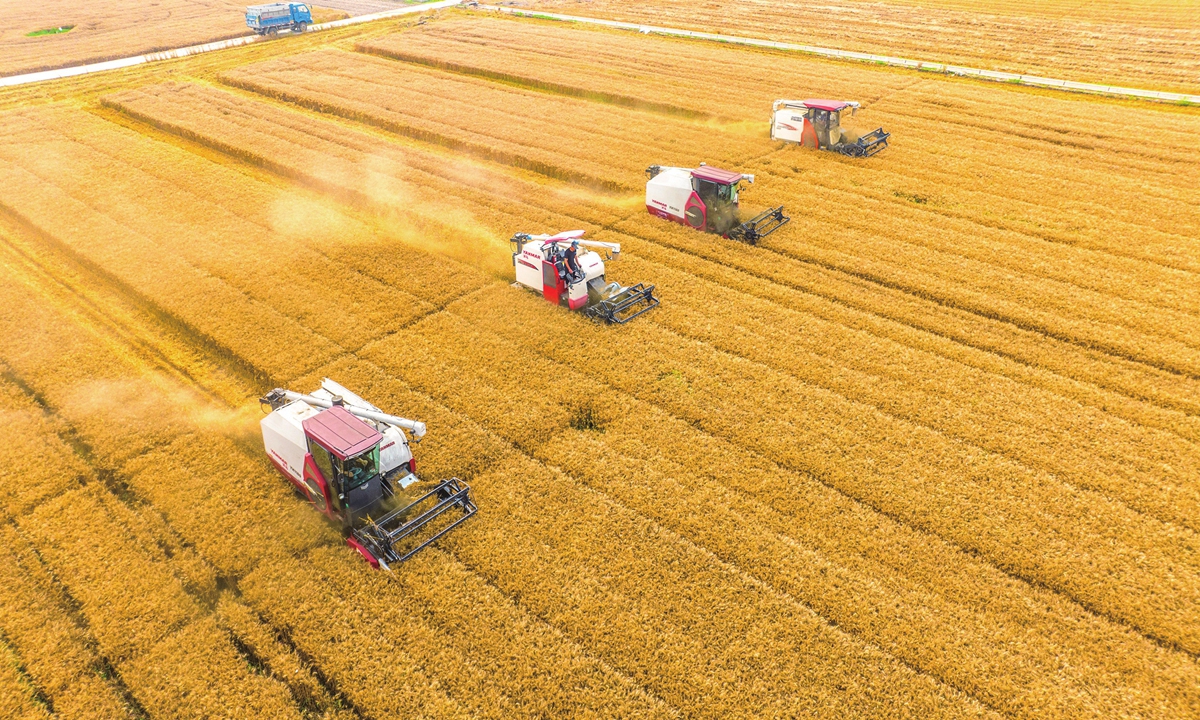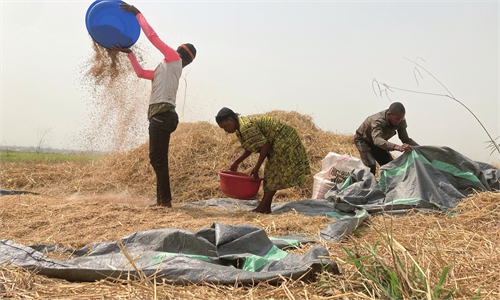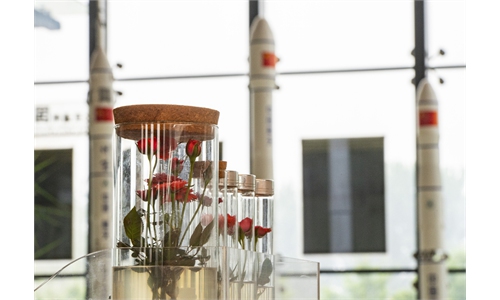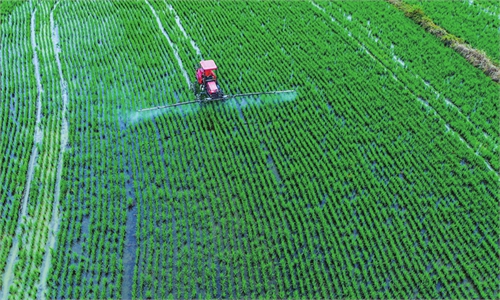
Farmers drive machines to harvest wheat in Hai'an city, East China's Jiangsu Province on June 7, 2023. Photo: IC
There has been a new wave of voices badmouthing the Chinese economy in the West, with some, including US President Joe Biden, trying to boost the US and Western economies by belittling the Chinese economy.But once again, that argument is bound to collapse in the face of China's economic resilience. The view of the Chinese economy depends on what angle you choose.
China is a developing country with a large population. What is the most important for its development? Food is the most basic foundation, which is also one of the key reasons why the Chinese economy is resilient.
With global food supply facing unprecedented tests from extreme weather and regional conflicts to trade restrictions and other factors, the urgency of China ensuring its food security has become more prominent than ever.
Alain-Richard Donwahi, president of the UN's desertification conference, warned that the world is likely to experience major disruptions to food supplies well before global temperatures rise by 1.5 C, as the impact of the climate crisis has combined with water scarcity and poor farming practices to threaten global agriculture, The Guardian reported over the weekend.
It is true that climate change has caused frequent extreme weather events, such as heat waves, more intense droughts, and floods, which have had a serious impact on global crop production. For instance, the worst US Midwest drought since 2012 has triggered concerns over local production of corn and soybeans.
But this may be just one of the challenges facing global food supplies. Warnings by experts and officials about potential food shortages are appearing more frequently than ever, highlighting the worries over the seriousness of the food problem.
Against this backdrop, it is paramount for China to safeguard its own food security and satisfy the needs of its 1.4 billion people. While the Chinese economy is facing severe challenges, many Western media outlets have played up pessimism over China's economic outlook these days. However, what they have overlooked is that China's summer grain harvest in 2023 totaled 146.15 million tons, data from the National Bureau of Statistics showed.
Even though the figure was down 0.9 percent from one year earlier, it was still the second-highest level ever for China's summer grain output.
Accounting for one-quarter of China's total grain output each year, the bumper summer grain crop has laid a solid foundation for year-round food security and injected confidence into the outlook for stabilized economic development. This is because food security is an important guarantee of a country's economic development, social stability and national security. This is also the most basic foundation for the Chinese economy withstanding various challenges and tests.
As the world's largest grain producer and consumer, China feeds one-fifth of the world's population with less than 10 percent of the world's arable land, which is a major contribution to the world's economic development.
Since 2010, China's per capita food output has always far exceeded the world's food security standard line of 400 kilograms per capita, with the domestic self-sufficiency rates of rice, wheat and corn all above 97 percent on average, according to Chinese media reports.
But China still faces serious challenges in ensuring a balance between food supply and demand. On the one hand, with the increasing population and consumption upgrading, food demand is bound to climb. On the other hand, extreme weather, water scarcity, volatile energy prices, trade disruptions due to the Russia-Ukraine conflict, trade curb, and lower levels of biodiversity will have negative impacts on global food supply, especially for food importers. For instance, India, which dominates around 70 percent of the global rice trade, announced in July a rice export ban, which has already sparked worries about runaway global rice prices this year. IMF chief economist Pierre-Olivier Gourinchas reckons that global grain prices could rise up to 15 percent this year, according to a recent BBC report.
Under such circumstances, it's more urgent than ever for China to safeguard its own food security so as to offset the external uncertainties with the certainty of a stable domestic grain output. Some of the measures it may take will include improving the agriculture production capacity, strengthening the protection and utilization of agricultural resources, establishing a sound grain reserve and emergency support mechanism, and expanding the international cooperation and food trade.



